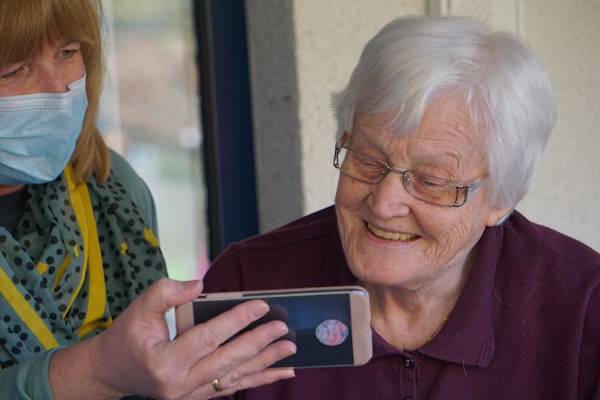Helping an elderly loved one transition into a retirement home can be challenging for both the individual and their family members. The process often involves many emotional and logistical considerations, which can be overwhelming. However, with proper support, patience, and understanding, it is possible to help your loved one adjust to their new living situation and flourish in their golden years. In this article, we will discuss several tips to assist your elderly family member in adapting to life in a retirement home.
Encourage Socialization and Meaningful Activities
One of the essential aspects of a successful transition is fostering a sense of community and belonging. Encourage your loved one to participate in various activities offered by the retirement home, such as group outings, exercise classes, or arts and crafts sessions. Introducing your loved one to their peers can help them form new friendships and feel more connected to their new environment. Moreover, consider bringing their favorite hobbies or pastimes, like 1000 piece puzzles, to help them maintain a sense of familiarity and continuity in their new home.
Choose the Right Retirement Home

Selecting the appropriate retirement home is critical in ensuring a smooth adjustment. Retirement homes, such as Golden Health Care, provide an array of services and amenities catered to the unique needs of their residents. When researching facilities, consider factors such as location, staff-to-resident ratio, available medical services, and the overall atmosphere. Involve your elderly loved one in the decision-making process to ensure their preferences are taken into account. A comfortable, welcoming environment can significantly impact their experience and overall satisfaction.
Maintain Regular Communication and Visits
Staying connected with your loved one is essential for both their emotional well-being and for monitoring their adjustment progress. Regular visits, phone calls, or video chats can help to alleviate feelings of elderly loneliness and isolation, while also providing opportunities to discuss any concerns or challenges they may be facing. Make an effort to visit during special events, such as holiday celebrations or family days, to create new memories together and demonstrate your ongoing support.
Help Personalize Their Living Space
Creating a warm, inviting living space that reflects your loved one’s personality and tastes can make their new residence feel more like home. Bring cherished possessions, such as family photos, favorite pieces of furniture, or treasured artwork, to help personalize their room. Encourage your family member to participate in the decorating process, allowing them to maintain a sense of autonomy and control over their environment.
Be Patient and Supportive

Transitioning to a retirement home is a significant life change that may take time to adapt to fully. Be patient and understanding as your loved one navigates their new surroundings and encounters potential challenges. Offer emotional support and reassurance, and be prepared to listen to their concerns and feelings. Acknowledge that this adjustment period may be difficult but emphasize the positive aspects of their new living situation.
Collaborate with Staff
Establishing a strong working relationship with the staff at the retirement home is crucial for ensuring your loved one’s well-being. Communicate openly with caregivers and administrative personnel about your family member’s needs, preferences, and medical history. Regularly check in to discuss their progress and any potential issues that may arise. By collaborating closely with the staff, you can help create a supportive and nurturing environment for your loved one.
Helping an elderly loved one adjust to life in a retirement home is a multifaceted process that requires patience, empathy, and open communication. By encouraging socialization, selecting the right facility, maintaining regular contact, personalizing their living space, offering emotional support, and collaborating with staff, you can help ensure a smoother transition and promote a positive experience for your family member.










